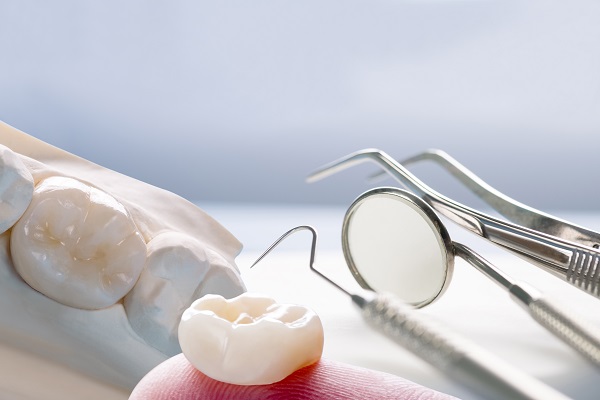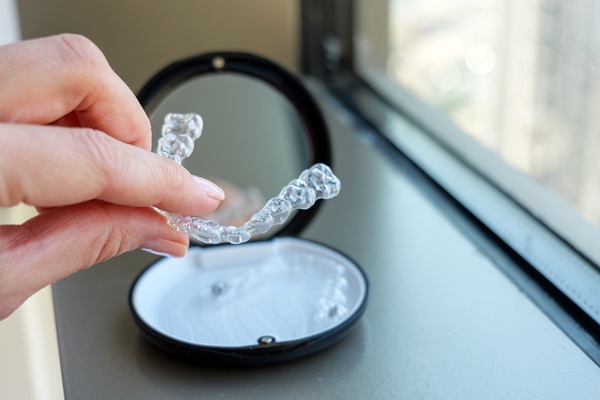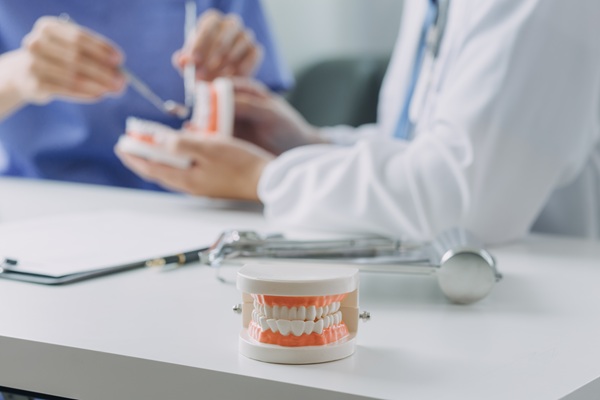3 Tips for Dental Crown Aftercare

Dental crowns are among the most common types of restorative treatments dentists provide. A crown has many uses and benefits. Not only can it restore the aesthetics of your smile, but it relieves pain, protects a damaged tooth, and prevents further problems from occurring to weak teeth. The process of getting a crown can require a few visits, but the results can last for years. There are some important steps you should follow to take care of it.
Reasons to get dental crowns
Crowns are not the right option in every situation, but this treatment makes sense for many conditions. The dentist might recommend a crown when a cavity is too large for a filling to support. Crowns usually cover a tooth after a root canal procedure as well. The dentist can place a crown over a broken, chipped, or cracked tooth. A crown also completes the process of getting dental implants.
Crowns are natural-looking in size, shape, and color. Usually, they are made of ceramic, porcelain, or composite resin. Crowns are durable and have a strong bite force. By having crowns, the patient should be able to chew effectively and have a full smile.
Be wary of certain types of food
People who have severely decayed or damaged teeth will have difficulty eating. Dental crowns restore this ability and let the person eat most foods. However, a person with a crown should cut down on some items. Hard foods such as some kinds of candy, popcorn kernels, ice, and bones can break a crown. Sticky foods such as taffy, caramel, and gum can pull a crown out. It is especially important to avoid these foods in the few days and weeks after getting a crown.
Do not forget about good oral hygiene
Having dental crowns does not preclude a person from having to brush and floss. It is still vital to keep up with these daily habits to maintain strong, effective crowns. Neglecting twice-a-day brushing and everyday flossing can lead to decay and gum disease around the crown, threatening the tooth underneath. This can also cause the crown itself to deteriorate or fall out.
Keep coming to the dentist’s office
Regular dental appointments should not stop or slow down after getting dental crowns. The dentist will want to follow up and see how well the crowns are performing. Checkups every six months allow the dentist to clean the crown and the teeth around it. If the patient detects that the crowns are coming loose or have any damage, a prompt visit is necessary. The patient should also call the dentist if they feel any pain while biting down or chewing.
Get the most out of your treatment
Having dental crowns can treat serious oral health conditions. Crowns also make a smile more attractive if you have damaged teeth. Your crowns can be more effective and last longer when you follow these guidelines and pay close attention to good maintenance. Your dentist can also give you some helpful tips to increase the longevity of your crowns.
Request an appointment here: https://draperfamilydentist.com or call Draper Parkway Dental at (801) 252-4439 for an appointment in our Draper office.
Check out what others are saying about our dental services on Yelp: Crown in Draper, UT.
Recent Posts
Dentists commonly recommend dental crowns to protect teeth that have become structurally damaged due to a variety of problems, including severe cavities, infection, and other forms of tooth decay. The application of dental crowns is one of the most widespread dental procedures, so it is important for patients to understand how long they should be…
CEREC® crowns are a popular solution that quickly restores your confident smile. A crown is a small cap that fits over your tooth to hide cosmetic issues and restore functionality to damaged teeth. While there are many types of crowns, this type is made of strong ceramic material and is designed, created, and installed with…
The acronym CEREC® stands for Chairside Economic Restoration of Esthetic Ceramics, and it allows dentists to create customized dental crowns while the patient waits in the clinic. The conventional way of making crowns requires the dentist to send an impression of the patient's teeth to a dental lab that makes restorations. The process typically takes…
More dentists are using CEREC® same-day crowns as a tooth-restoration method. If you have a damaged or severely decayed tooth, this treatment could be just what you need. There are benefits and advantages to choosing this method over other options. It is useful to understand how the process works and how it is different than…


